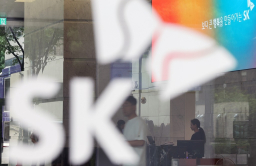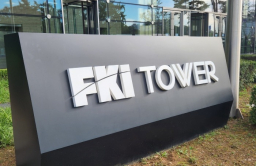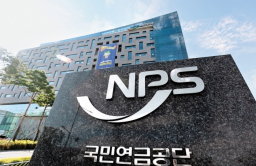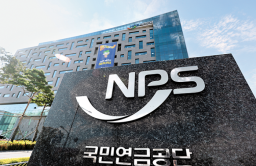-
KOSPI 2812.05 +41.21 +1.49%
-
KOSDAQ 756.23 +6.02 +0.80%
-
KOSPI200 376.54 +6.64 +1.80%
-
USD/KRW 1373 3.00 -0.22%
Proxy voting rises in South Korea, but few vetoes cast
Shareholder activism
Proxy voting rises in South Korea, but few vetoes cast
Many asset managers fail to comply with disclosure guidelines, top financial regulator says
By
Jun 05, 2025 (Gmt+09:00)
3
Min read
News+

An increasing number of asset management firms in South Korea are more frequently exercising their voting rights at portfolio companies. Nevertheless, they rarely oppose those companies’ proposed agendas, data shows.
The regulatory Financial Supervisory Service (FSS) said on Wednesday that the rate of asset managers’ proxy voting at shareholder meetings stood at 91.6% in the period from April 1, 2024 to March 31, 2025.
Of the votes, only 6.8% were cast against the companies' proposed agendas.
The data is based on an analysis of 273 asset management firms operating in South Korea on 28,969 proposed agenda items at shareholder meetings during the period.
That compares with year-earlier figures of a 79.6% voting rate and an objection rate of 5.2%, according to the FSS.

South Korea's major pension funds, such as the National Pension Service (NPS) and the Government Employees Pension Service (GEPS), are more active in exercising their voting rights than asset management firms.
During the period from April 1, 2024 to March 31, 2025, the NPS, the world’s No. 3 pension scheme, recorded a participation rate of 99.6% and an objection rate of 20.8% at domestic companies' shareholder meetings, while the GEPS reported rates of 97.8% and 8.9%, respectively.
The agenda items asset managers vetoed most frequently were corporate reorganization, such as mergers and spin-offs (26 cases, 21.5%); amendments to the articles of association (286 cases, 9.0%); and appointment and dismissal of board members (789 cases, 7.9%).

PUBLIC DISCLOSURES
A review of voting disclosures found that 72 out of 273 asset management firms, or 26.4, fell short in offering detailed explanations for more than half of their proxy items, often using phrases like “limited impact on shareholder meetings” or “no violation of shareholder rights.”
A substantial number of them also failed to comply with disclosure guidelines and reporting format requirements, the financial watchdog said in a statement.
DILIGENT FIDUCIARIES
By asset manager, Mirae Asset Global Investments Co., Trust Asset Management Co. and Shinyoung Asset Management Co. received relatively positive ratings.
Mirae Asset scored highly on the participation and objection rates, which came to 99.3% and 16.0%, respectively. The firm also provided detailed explanations for its voting decisions.

Despite its smaller size, Kyobo AXA Asset Management operates a dedicated team for proxy voting and provides clear, guideline-based explanations for its voting decisions. The firm recorded a participation rate of 97.4% and an objection rate of 16.1%.
Truston Asset Management and Shinyoung Asset Management actively engaged in shareholder rights processes, including meetings with management and submitting shareholder proposals. Their proxy voting participation rates were also high at 100% and 98.8%, respectively.
By contrast, Korea Investment Management Co. and KB Asset Management Co. scored low in providing explanations for their voting decisions.
Meanwhile, many private equity fund management firms failed to comply with proxy right disclosure deadlines, said the FSS.
The financial regulator said that it will introduce a comparative disclosure system for fund proxy voting to help investors identify diligent fiduciaries, while improving stewardship code practices in reference to global standards.
Write to Seok-Cheol Choi at dolsoi@hankyung.com
Yeonhee Kim edited this article.
More To Read
-
May 23, 2025 (Gmt+09:00)
-
 Mergers & AcquisitionsLS moves closer to role as Hanjin KAL’s white knight vs Hoban
Mergers & AcquisitionsLS moves closer to role as Hanjin KAL’s white knight vs HobanMay 18, 2025 (Gmt+09:00)
-
 Shareholder activismActivist fund Oasis boosts Korea team amid investor-friendly policy shift
Shareholder activismActivist fund Oasis boosts Korea team amid investor-friendly policy shiftApr 22, 2025 (Gmt+09:00)
-
 Mergers & AcquisitionsMBK's fight for Korea Zinc control drags on after court ruling
Mergers & AcquisitionsMBK's fight for Korea Zinc control drags on after court rulingMar 07, 2025 (Gmt+09:00)
-
Jan 22, 2025 (Gmt+09:00)
-
 Shareholder activismKorean activist investors to routinize campaigns throughout year
Shareholder activismKorean activist investors to routinize campaigns throughout yearJan 03, 2025 (Gmt+09:00)
-
 Pension fundsNPS to veto SK Innovation’s merger with LNG affiliate
Pension fundsNPS to veto SK Innovation’s merger with LNG affiliateAug 23, 2024 (Gmt+09:00)
-
Aug 20, 2024 (Gmt+09:00)
-
 Shareholder activismShareholder activism in Korea swells 9 times since 2019
Shareholder activismShareholder activism in Korea swells 9 times since 2019Mar 26, 2024 (Gmt+09:00)
-
Feb 20, 2024 (Gmt+09:00)
-
 Shareholder activismRise of Korean activist investors at home
Shareholder activismRise of Korean activist investors at homeJan 12, 2024 (Gmt+09:00)
-
 Shareholder activismSouth Korean companies rattled by activist shareholders
Shareholder activismSouth Korean companies rattled by activist shareholdersFeb 06, 2023 (Gmt+09:00)






